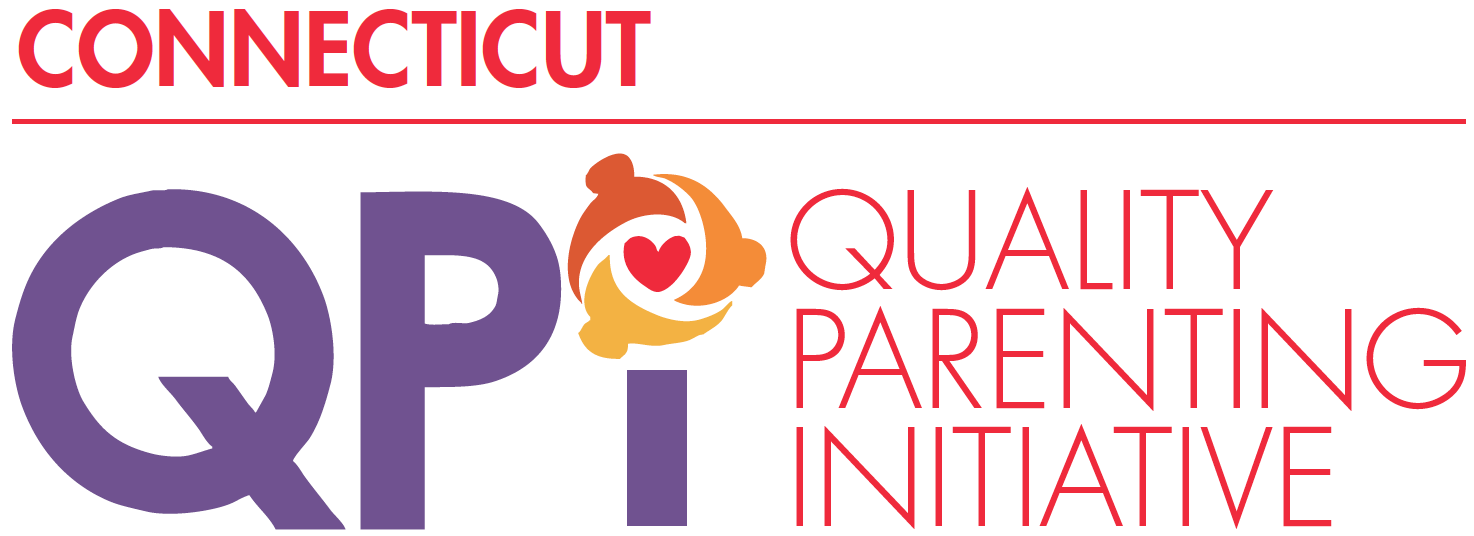QPI Connecticut (QPI-CT) is the foundation for the CT Department of Children and Families Foster Care System. We are working in partnership with the Youth Law Center and its Quality Parenting Initiative, a national movement for foster care change that is made up of a network of states, counties and private agencies committed to ensuring that all children in care have excellent parenting and lasting relationships so they can thrive and grow.
QPI-CT is built on the belief that excellent parenting with strong, positive relationships is the best intervention we can offer children to enable them to heal as they grow up to become adults. Creating a system that ensures excellent parenting requires the support and involvement of birth families, relative caregivers, foster families, young people, and others in the CT foster care system.
Research has demonstrated that children and youth need consistent and effective parenting to thrive. When parents cannot care for their children, another caregiver, in partnership with the child welfare system, must be able to provide loving, committed, and skilled care that enables the children to feel trust in their relationships with the adults in their lives.
A Change in Mindset
Children who enter the foster care system have had traumatic experiences far different from the experiences of ordinary childhood. They are removed from their parents, homes, and neighborhoods without understanding why or what happens next, losing meaningful connections to siblings and familiar adults.
To undo this harm, Connecticut’s foster care system works to support families and is not a substitute for parents. We are committed to a simple principle: every child deserves excellent parenting every day.
QPI-CT works in our six regions with each one determining how to implement QPI principles based on their unique needs and strengths.
QPI is based on three core principles:
- Consistent excellent parenting and meaningful relationships are the most important services we can provide to children and youth in foster care. Every policy, practice action, and statement the system adopts should strengthen parenting skills and relationships.
- Research on child, youth, and brain development and the effects of trauma not only demonstrates the importance of parenting and positive relationships but also provides guidance on how best to support them. Agency policy and practice should be informed by research.
- The individuals most affected by policies and practices are in the best position to design and implement change so that systems ensure excellent parenting and meaningful relationships for children who enter their care.
A network of the QPI-CT regions shares information and ideas about how to improve parenting as well as recruit and retain excellent foster families.
The key elements of the QPI-CT approach are:
- Defining the expectations of and by caregivers,
- Clearly communicating these expectations to all staff, caregivers, and other stakeholders, as well as the general public, and
- Aligning system policy and practice with those expectations
Stakeholder work together to reshape the culture, practices, and policies; encourage active and meaningful communication; build relationships among birth families, relative caregivers, foster families, youth, and the child welfare agency; and ensure that children have access to the childhood and teenage experiences that will help them heal, grow, and flourish.
Birth and foster resource families, including relatives and extended family members, work together as a team with agency staff and other stakeholders to develop consensus about a definition of excellent parenting. Caregivers have a voice and receive the support and training they need to work with children and families, to understand what is expected of them, and to know what to expect from the system.
QPI-CT works to help kin, foster, and other resource families become expert parents—to help them become professionals in parenting. When these changes are accomplished, outcomes for children, youth, and families improve.
Launched in 2008 in Florida by the Youth Law Center, QPI4Kids has expanded to more than 80 jurisdictions in 10 states: California, Connecticut, Florida, Kansas, Louisiana, Minnesota, Nevada, New Mexico, Pennsylvania and Texas.
The QPI4Kids staff is supporting QPI-CT throughout this process and provides access to a range of implementation and advocacy resources including training and developing internal local champions in Connecticut’s six regions.
For more information, email us at info@qpiylc.org
January 2022
